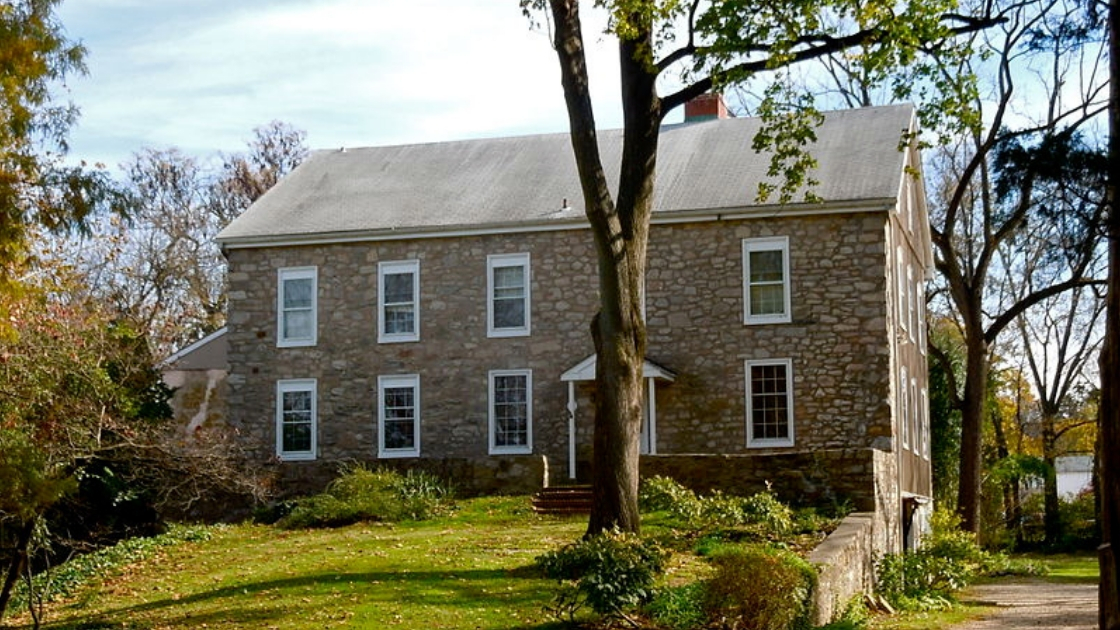On November 21st, The Friends of Abolition Hall, along with two nearby property owners, filed an appeal to the decision by the Whitemarsh Board of Supervisors to approve a conditional use application that would allow townhomes to be built on the Abolition Hall property in Plymouth Meeting (Whitemarsh Township). Below is a press release from The Friends of Abolition Hall:
Through an appeal filed on November 21, 2018 with the Montgomery County, PA, Court of Common Pleas, the Friends of Abolition Hall is pursuing its objections to the K. Hovnanian plan to subdivide the historic Corson Homestead at the heart of the Plymouth Meeting National Historic Register District. The Friends assert that in judging the plan’s compliance with local Codes and Ordinances, the Whitemarsh Township Board of Supervisors abused its discretion and committed errors of law.
“The historic values of our Plymouth Meeting area are being infringed upon. We should remember the events that took place here, and the courage of the people whose lives touched this hallowed land. We should be honoring this homestead,” said Appellant Mary Celine Childs, who has lived nearby for 42 years and is a past-president of the Whitemarsh Lions Club. Ms. Childs and another nearby neighbor, Anita Thallmayer, have joined with the Friends of Abolition Hall in filing this appeal.
The Corson Homestead, consisting of 10.45 acres, was a busy stop on the Underground Railroad, the pathway to freedom for fugitives fleeing the abomination of slavery. With the passage of the federal Fugitive Slave Act in 1850, both fugitives and those who gave them shelter were at great risk—of arrest, fines, and in the case of the men, women and children who sought freedom, capture and painful repercussions. After the Civil War, artist Thomas Hovenden, who married into the Corson family, made the farm his home, and converted Abolition Hall to his studio. It was here that he painted The Last Moments of John Brown, Breaking Home Ties, and many portraits that depict the residents, laborers, and artisans of the villages of Plymouth Meeting and Cold Point. Hovenden’s work is featured prominently in major collections throughout the United States and abroad. The homestead is individually listed on the National Register, and is likely eligible for National Historic Landmark status.
The appeal filed in Norristown asks the court to reverse the approval granted by the Whitemarsh Township Board of Supervisors. That approval, which followed seven months of public hearings, cleared the way for the developer to submit formal plans to construct 67 townhouses on the fields that previously sustained the Corson family. Land on an adjacent parcel, separately owned and consisting of 2.7 acres, also is included in the subdivision plan.
The Friends group continues to accept donations through its nonprofit fiscal sponsor, Preservation Pennsylvania. Tax-deductible contributions in support of this appeal can be made online at http://preservationpa.org/page.asp?id=65. The page offers instructions for sending a check and making an anonymous gift. Visit the Friends page on Facebook at Plymouth Meeting Abolition Hall. To learn more about the homestead, watch History at the Crossroads: The Activists and Artists of Abolition Hall.
You can read the appeal here.
Photo: Wikipedia Commons

